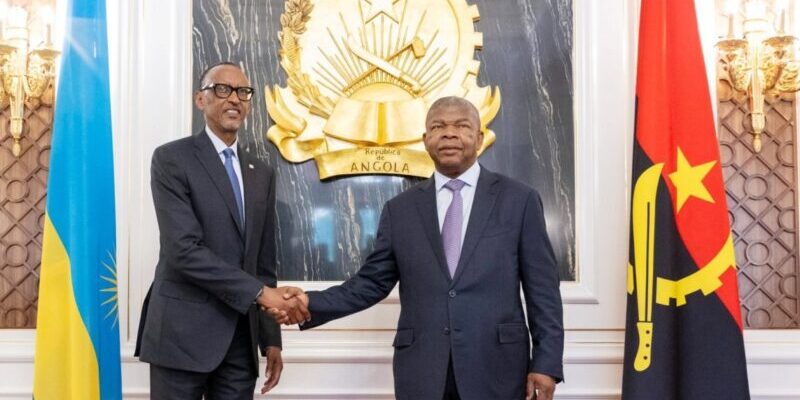Kagame and Lourenço Discuss DRC Security in Luanda Meeting
President Paul Kagame of Rwanda and his Angolan counterpart Joao Lourenço met in Luanda on Monday, March 11, to discuss the security situation in eastern DR Congo, as reported by Village Urugwiro.
Kagame was on a one-day working visit to Luanda, where both leaders agreed on key steps to address the root causes of the conflict. They emphasized the importance of upholding the Luanda and Nairobi processes to achieve peace and stability in the region.
Lourenço, serving as a mediator between Rwanda and DR Congo, played a crucial role in facilitating discussions between the two countries.
Their diplomatic relations were affected by the conflict in eastern DR Congo, where government-led forces are combating the M23 rebels.
The meeting occurred amidst calls from various governments and international organizations to return to the negotiation table to prevent the crisis from escalating into a regional conflict. Despite these calls, the Congolese government has faced accusations of prioritizing military operations over peace processes.
Recently, Lourenço hosted Congolese President Felix Tshisekedi for discussions regarding the crisis in eastern DR Congo. Tshisekedi has accused Rwanda of supporting the M23 rebels, while Rwanda has raised concerns about the integration of the FDLR militia into the Congolese armed forces.
President Kagame emphasized the need to address the issue of FDLR integration into the Congolese army for a lasting solution to be achieved. He also expressed reservations about the deployment of the SADC regional force into DR Congo.
The FDLR militia, founded in 2000 with the assistance of Congolese political and military leaders, poses a significant threat to the security of both DR Congo and Rwanda.
Despite orders from the Congolese army to sever ties with the FDLR, the militia remains integrated into the armed forces, according to the Rwandan government.
The volatile situation in eastern DR Congo, home to over 130 armed groups, has persisted for nearly three decades, defying multiple intervention attempts.
97 total views , 1 views today





